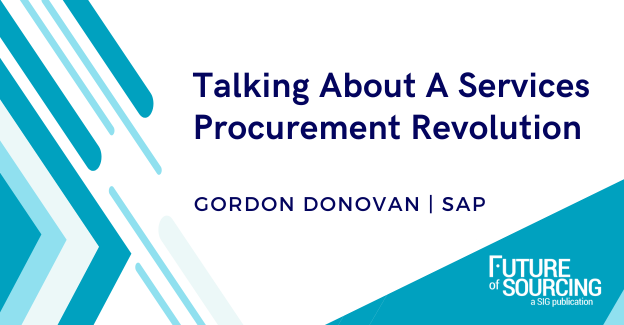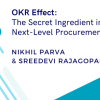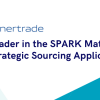The responsibilities of procurement professionals have changed considerably in recent years. But there’s one change that doesn’t get much press. It’s a not-so-subtle shift in emphasis from procuring goods to procuring services.
We’ve already seen this shift in our daily lives. For example, these days it’s not unusual to hire someone to do your grocery shopping. When your refrigerator needs replacing, you pay for delivery and installation services for the new one, and pay to have the old one carted away.
And don’t get me started about all the services available when you buy a car.
In the business world, procurement professionals are increasingly challenged to master the art of servicesprocurement. I recently spoke about this with Pierre Mitchell, Chief Research Officer at Spend Matters. You can hear our full conversation, which covers today’s procurement challenges and where we think it’s going, in our Spend Matters podcast.
In our “everything is a service” world, Pierre says, many things can be consumed through a business process service, or an information service, or via software as a service. I’ll take that a step further. In recent years organizations have seen first-hand how they can leverage services to fill skills gaps, execute projects, and create a more flexible and economical workforce. Staff augmentation, focused managed service providers (MSPs), and outsourcing make this possible.
As a result, since the start of the pandemic there has been no slowdown in the procurement of services. Interestingly, this trend has created a clear overlap between the work done by the procurement and human resources functions. In fact, a 2022 report from Harvard Business Review observed that if services procurement continues at the current pace – which the report says it will – the human resources and procurement functions will need to work together more closely than they ever have.
The C-suite is taking notice
In 2022, an Economist Insight paper sponsored by SAP reported that C-level executives want their procurement teams to turn their focus to “organizational operating mode redesign.” This includes the many different forms of services procurement: temporary workers, outsourcing, insourcing, and services contracts. They want to know how their organizations can use these strategically at a time when agility is essential and key skills are hard to find.
This shift in focus is compelling procurement teams to become experts in every aspect of services procurement. However, as we noted in our Spend Matters podcast, the procurement of services is quite different from procurement of goods. Many services are far too complex to be tucked neatly into a catalog. They require planning and ongoing oversight. They also require skills and expertise that many procurement professionals don’t possess.
Not your traditional source to pay process
Sourcing a services contract requires procurement to do significant up-front planning. How will you consume the contract? Are you buying labor, or are you buying an outcome? What is the cost mechanism – daily rates, time and materials, fixed-fee? How do you balance risk with agility?
Traditionally, procurement would prefer a fixed-fee approach, which makes it possible to manage risk by building it into the statement of work (SOW). But that comes with its own problems. In the podcast I tell the story of how, years ago, I outsourced facilities management for transport in London. The scope for cleaning services alone was horrendous! A fixed-fee contract to clean London’s transportation system required an uber-detailed SOW – it was 200 pages, forget about agility. Plus, it’s challenging to define in an SOW when to outcome of the work is acceptable – you can’t just say things are “clean.”
It's time to engage in a strategic discussion
While the complexities of services procurement may seem a bit maddening – and a departure from how we’veworked in the past – procurement teams should see this as an opportunity. We’ve talked so much about how procurement demands a place in C-suite discussions to provide strategic guidance to the business. Let’s not forget the Economist Impact survey, which tells us C-suite executives want procurement’s guidance with “organizational operating mode redesign.”
Clearly, these executives want to engage in strategic discussions around how to shape the workforce, leveraging external workers, outsourcing, and managed services. I would submit that there are questions businesses aren’t asking themselves today – and these should be the starting point for these strategic discussions. Questions like:
· What are the core needs of our business, and how can the procurement of services support them?
· When does an outsourcing contract cease to be an outsource contract, and become a full-on services contract?
· Can we turn the tables on a traditional outsourcing model and use insourcing to build unique products that differentiate us from the competition?
The procurement function brings the deep supply and market knowledge that will enable organizations to ride the seemingly continuous revolution in business. It’s time to engage, because, as The Beatles sang, “You say you want a revolution. Well, you know, we all want to change the world.”
In our Spend Matters podcast, Pierre Mitchell and I dive into today’s pressing challenges in services procurement and offer insights into what needs to happen for procurement teams to take a leading role in guiding the future of their businesses. I encourage you to have a listen.









